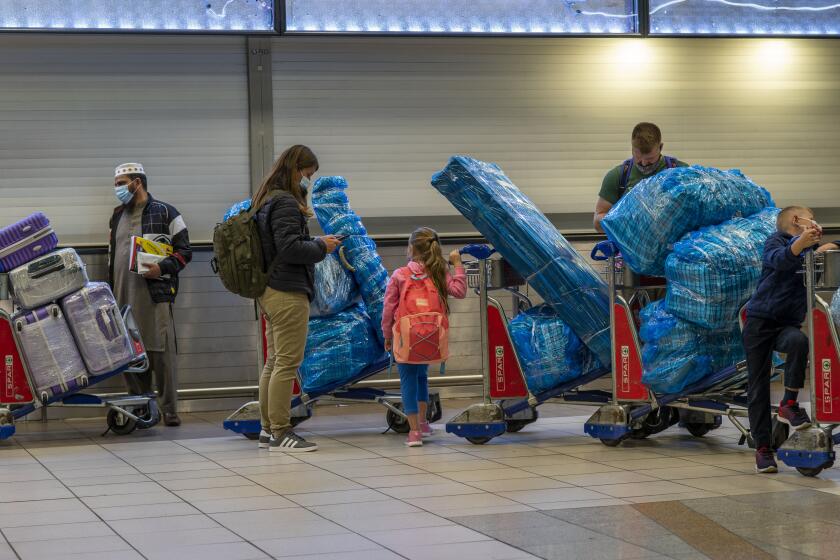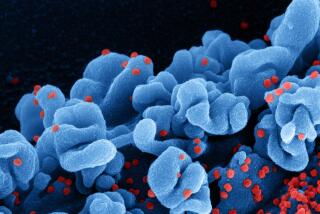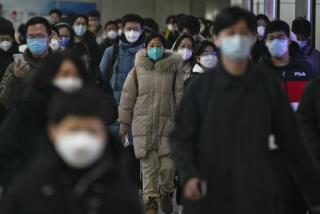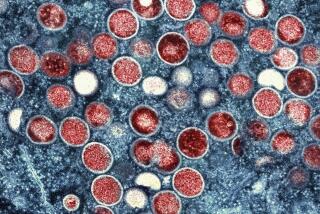WHO declares new Omicron coronavirus strain a ‘variant of concern’
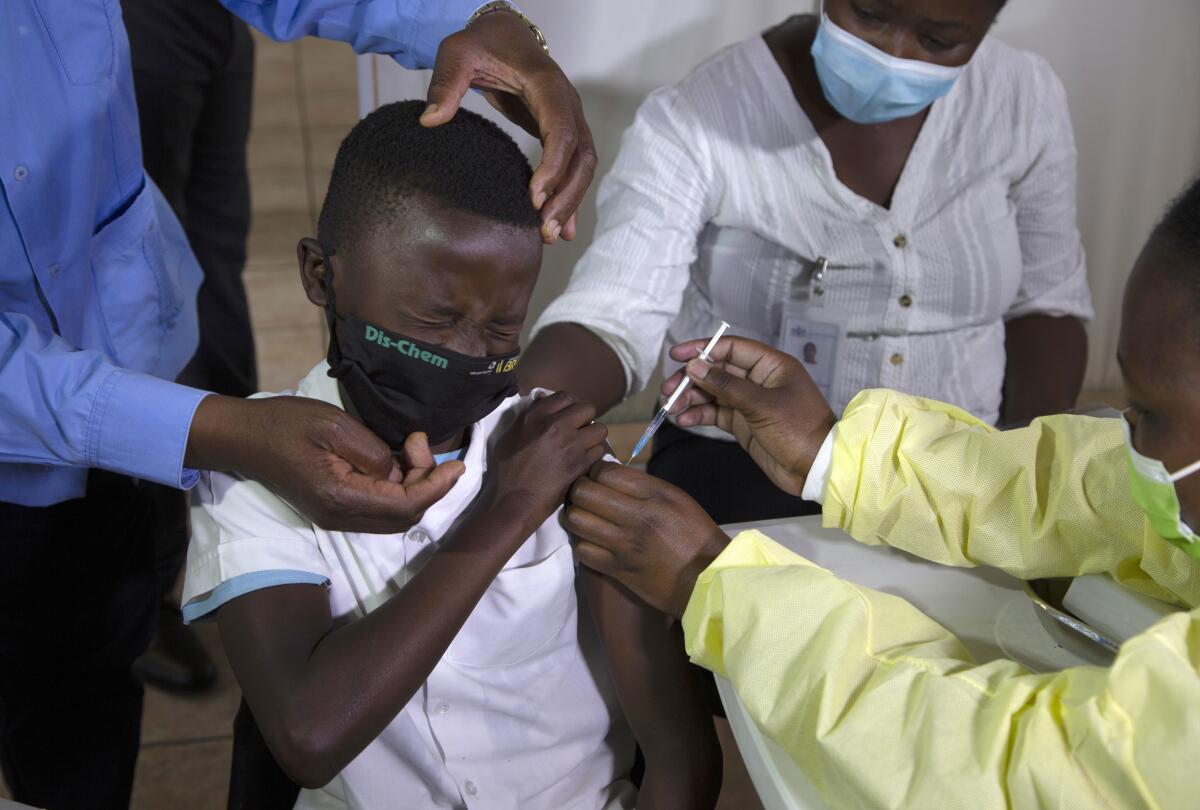
- Share via
The World Health Organization said that a strain of coronavirus recently discovered by South African researchers is a variant of concern, posing a threat that could confound countries’ efforts to slow the spread of COVID-19.
The WHO assigned the Greek letter Omicron to the variant, which had been known as B.1.1.529, following a meeting by a panel of experts Friday.
Scientists say the variant carries a high number of mutations in its spike protein, which plays a key role in the virus’ entry into the body’s cells. It’s also what is targeted by vaccines, so if the protein changes enough, it raises concern that the mutations could make immunizations less effective.
In South Africa, the strain “has been detected at faster rates than previous surges in infection, suggesting that this variant may have a growth advantage,” the WHO said Friday.
Preliminary evidence also suggests Omicron may present a greater risk of reinfection than other variants of concern, according to the health body.
The WHO uses the label “variant of concern” to signify a strain that poses additional risks to global public health. So far, it has identified four of them, in addition to omicron. The WHO also calls some strains “variants of interest” if they warrant close monitoring because of their emerging risk.
The discovery of the Omicron coronavirus variant prompts the U.S. to join the EU and other countries in restricting travel from southern Africa.
South African Health Minister Joe Phaahla said Thursday the variant, first sequenced on Nov. 11, was of serious concern, and many countries followed the announcement with travel restrictions to the region. Susan Hopkins, chief medical advisor to the U.K. Health Security Agency, said the strain is the most worrying yet.
On Friday, the White House said the U.S. would restrict travel from South Africa and seven other countries in the region beginning Monday
The variant has also been detected in countries including Botswana, Belgium, Israel and Hong Kong.
The WHO made no mention of travel curbs in its statement. Instead, it recommended countries enhance surveillance and sequencing efforts to better track and understand variants of concern, submit their findings to a publicly available database and report any cases and clusters to the WHO.
BioNTech, which has partnered with Pfizer Inc. on one of the main COVID vaccines in use, said Friday it has begun studying the variant and expects the first data from laboratory tests about how it interacts with its shot within two weeks. Another vaccine maker, AstraZeneca, said it’s also investigating the variant.
More to Read
Sign up for Essential California
The most important California stories and recommendations in your inbox every morning.
You may occasionally receive promotional content from the Los Angeles Times.
